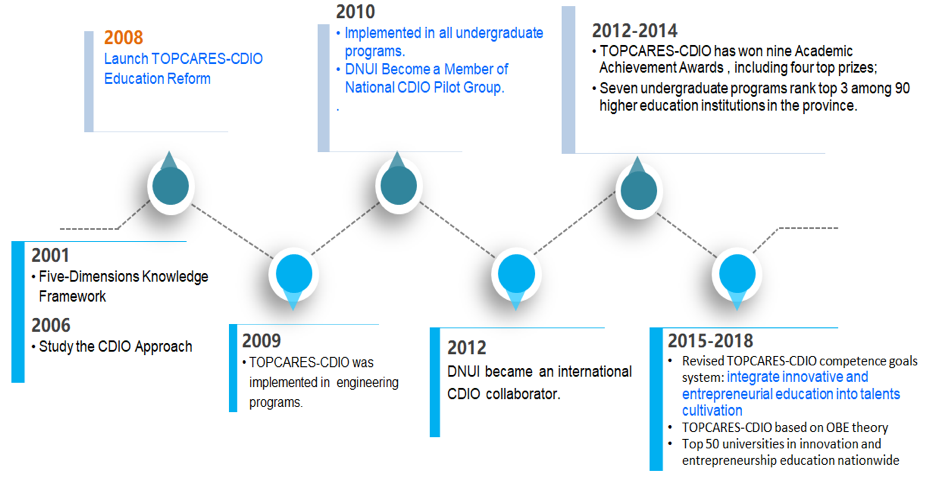CDIO in DNUI: TOPCARES-CDIO
With CDIO knowledge framework and further research into the industry, companies and stakeholders, DNUI issued TOPCARES-CDIO competence goals system in 2008, which inherited and innovated the CDIO framework, and then constructed its own competence goals
system. TOPCARES-CDIO is a comprehensive and systematic reform directed by CDIO philosophy in teaching and learning. It was first implemented to engineering programs and then to all DNUI's undergraduate programs including business, language
and art programs.
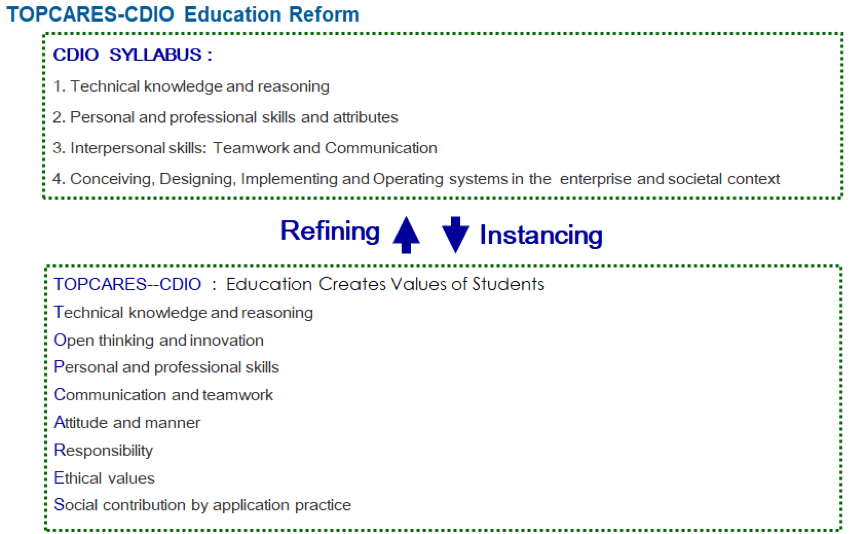
TOPCARES-CDIO's refining and instancing in CDIO
The TOPCARES-CDIO competence goals system is composed of 8 first-level goals, 34 second-level goals and 126 third-level goals. ‘TOPCARES' is the acronym of the eight first-level competence goals. It also stands for the supreme affection and responsibility
education bears to students: by promoting students' comprehensive development in knowledge, skills and attitudes synergistically, TOPCARES-CDIO system enables universities to help students creating their own values, so they can further
create social values with application practices. The system, as shown in Figure 4, combined with international accreditation agreements' requirements (Washington Accords, Sydney Accords, and Dublin Accords), and industry expectation for
talents, are then reflected in the learning objectives of different programs. Hence the graduate attributes and related competence goals of different programs can be listed explicitly.
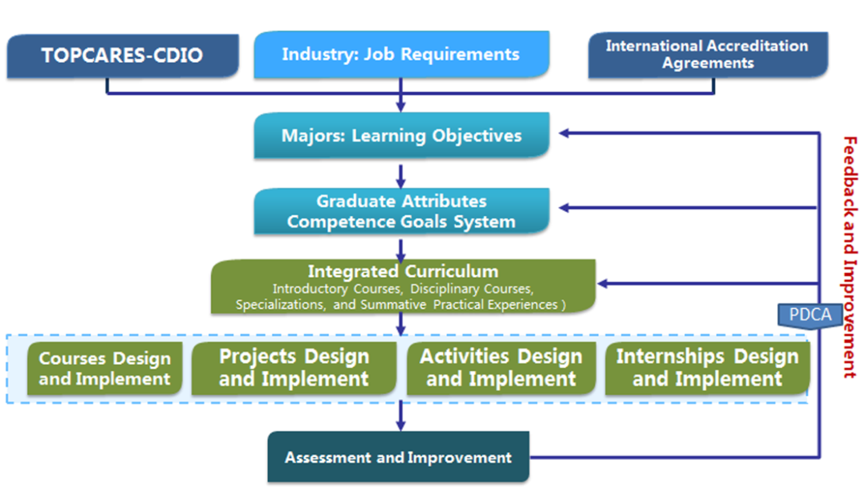
DNUI's blueprint of innovative engineering talent nurturing system adopted CDIO approach
TOPCARES-CDIO integrates professional education, all-around development education, and innovative and entrepreneurial education into talent nurturing plans. Its integrated curriculum is outcome-based, pulled by a five-level projects system, and dynamically
updated with industry progress. DNUI set up Student Office and Venture Office (SOVO) in 2002, a department offering entrepreneurial training, service, capital, network and culture, to improve its graduates' innovative and entrepreneurial
attributes as well as its ability to incubate start-ups.
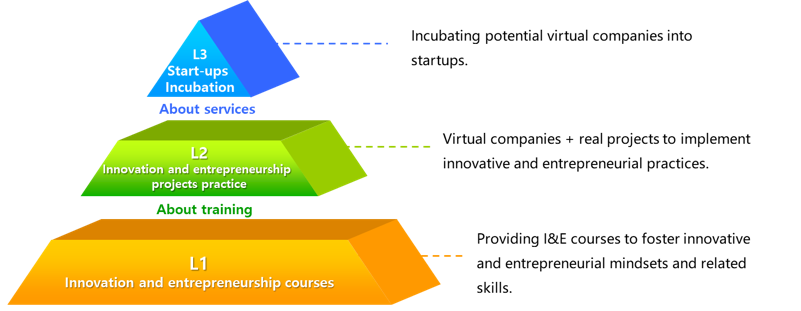
DNUI's innovation and entrepreneurial education platform: SOVO (Student Office & Venture Office)
DNUI's “4A” Flexible Learning Environment and up-to-date engineering resources environment enable students to learn Anytime, Anywhere, by Anyway and with Any-content.
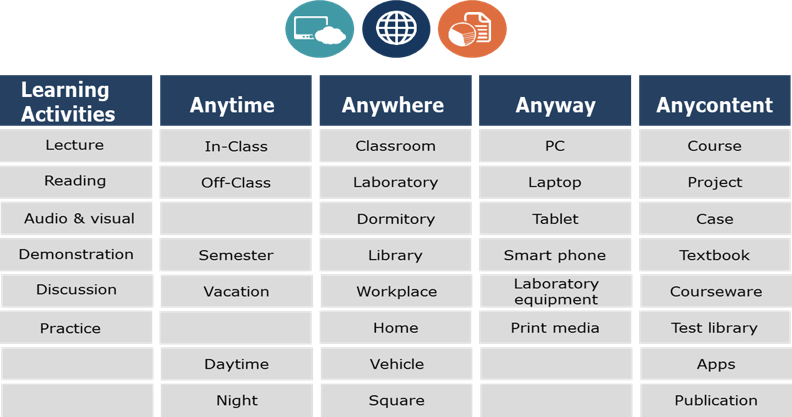
“4A” Flexible Learning Environment Base on Cloud Platform
At DNUI, we encourage lecturers to acquire practical experience in their professions. Around 60% of faculty have dual-qualifications, dual-income, and dual-positions from both university and industry, and are capable of bilingual teaching.
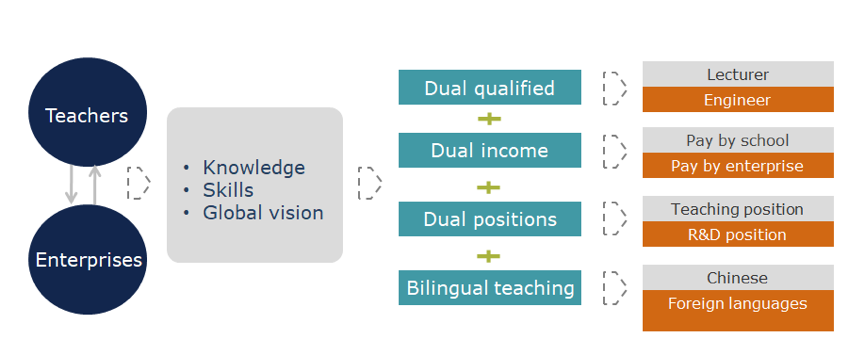
Dual qualified, dual income, dual positions, bilingual teaching faculty in DNUI
We also build an all-around quality assurance system that helps us ensuring the quality of every aspect of student learning experience.
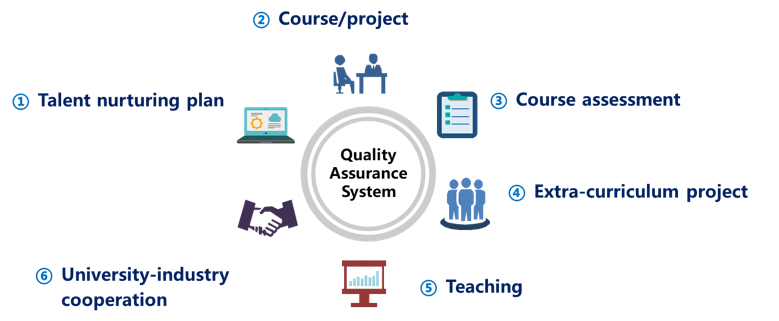
DNUI's quality assurance system
At present, TOPCARES-CDIO, with wide recognition, has received much concern at home and abroad. With its continuous progress, DNUI students are able to apply what they've learnt, let their wisdom inspired and creativity sparkle, become the backbone of
the industry, and contribute to the society.
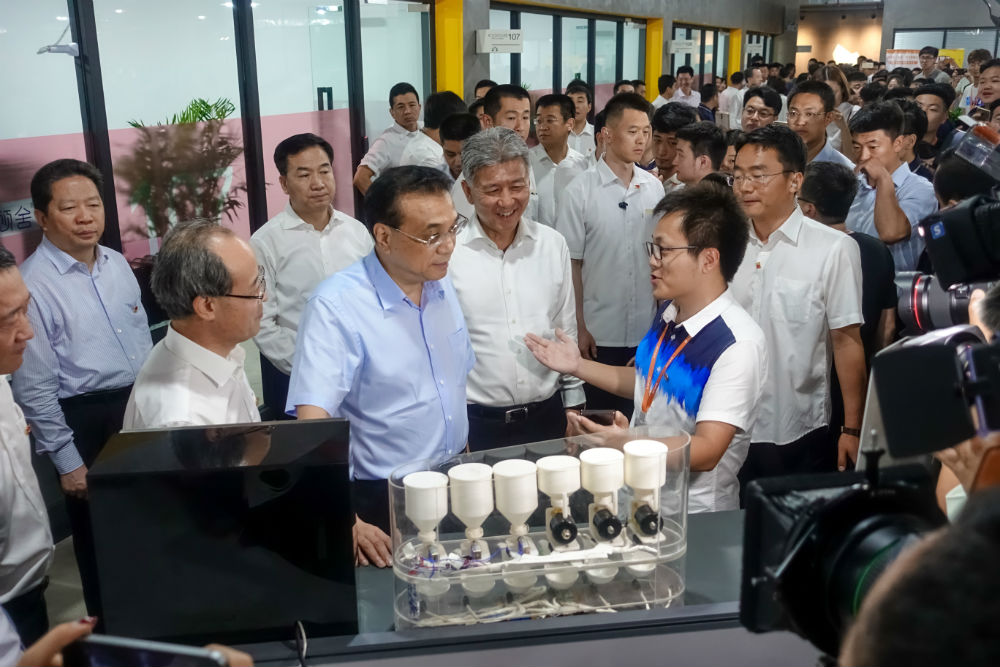
Premier Li Keqiang visited DNUI and talked with student entrepreneurs in SOVO, 28th June 2017

DNUI students won the First Prize in the 7th Computer Application Ability and Information Literacy Contest, 22th May 2017

DNUI students won the international silver award in the 21st Japanese Rugby Robot Contest, 16th to 18th December 2016
With a new round of industry revolution taking place worldwide, our domestic manufacturing sector will gradually be reshaped and upgraded. Future industry requires talents that are innovative, globally competent, socially responsible, and most importantly,
can Conceive-Design-Implement and Operate complex real-world engineering problems. And it is DNUI's mission to prepare students for this future. We believe that with our efforts and devotion, we will fulfill this mission, and become a
leading university which is Characteristic, High-standard, Entrepreneurial and Application-oriented.
